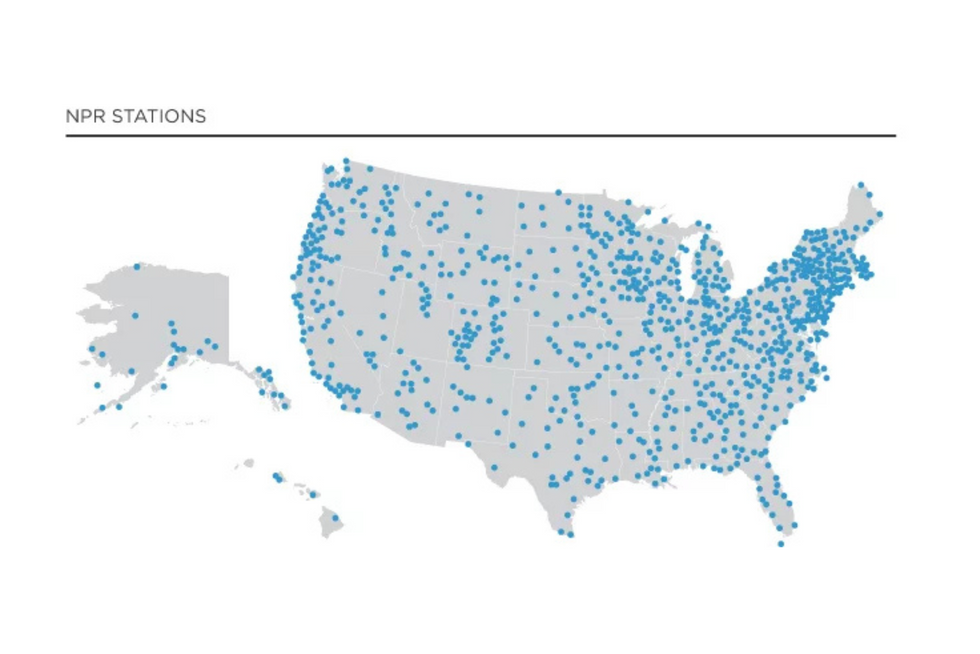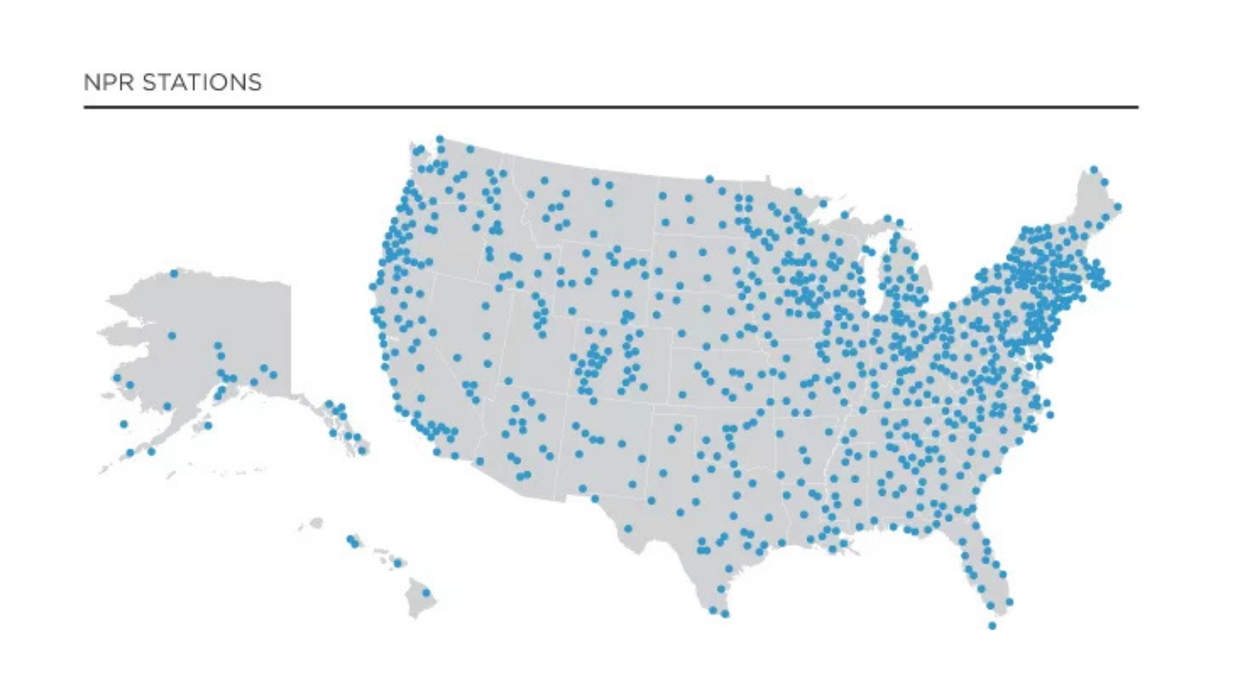This morning we woke to our local NPR affiliate, WAMU, reporting a story about how the public media network it belongs to is on the brink of losing funding, per a party-line vote in the U.S. Senate last night.
The public media portion of the claw-back is 1.1 billion – the amount Congress previously approved to fund the Corporation for Public Broadcasting, which distributes funds to NPR, PBS and over 1500 local radio and TV stations that serve communities around the U.S. The deadline for the House to seal the deal is tomorrow – July 18.
I’m not sure people understand the effect this could have on democracy, local accountability, even our sanity as a nation. Millions of Americans rely on public media for their news – and while they may not realize it, to stay safe. When we watched PBS shows as kids, we came to expect the “test of the public broadcasting network” that included a long tone and rainbow bars on the screen. As we read about how the lack of a warning system affected the flood response in Texas, it’s hard to fathom how 51 sitting Senators, many who represent rural and disaster-prone areas, can rationalize defunding that system.
Geographically, our public media system is the most expansive we have, and they’re all nonprofits – free from corporate or wealthy owner agendas. NPR’s programming is accessible to 98.5% of the U.S. population. Here’s a map:
 There are over 1000 NPR Member Station signals broadcasting across the United States NPR
There are over 1000 NPR Member Station signals broadcasting across the United States NPR
If you’re a fan of lean operations, look no further than your local public media affiliate. Last fall we had a reporter from WITF, Jordan Wilkie, speak at a workshop in Chambersburg, PA. WITF covers nine Pennsylvania counties, he said, with a total of five staff.
Public media is also crucial to our model of self-governance. 2022 researchers Timothy Neff and Victor Packard of the University of Pennsylvania looked at the link between public media funding and democratic health in over 30 countries and found that strong public media systems positively correlated with healthy democracies. They also found the U.S. public media system to be grossly underfunded: At the time, Germany was spending $142.42 per capita on public media, Japan $53.15, Botswana $18.38 and the U.S., just $3.16. Note also that we’re not alone: Countries from Canada to Lithuania – 33 in this particular study -- have public media networks (For more analysis, see this NeimanLab piece).
No argument for “American exceptionalism” justifies dismantling networks that are clear pillars of democratic governance in developed countries globally, and for which our spending is relatively low anyway.
Attacking public media isn’t new, but this is the first time it’s been backed by a years-long effort to discredit the traditional media sector, rich with claims that entities are inherently biased, failing, “the enemy of the American people” – choose your catch-phrase, you’ve heard them all. In April 2024, NPR business editor Uri Berliner threw in against his own employer in an op ed in Bari Weiss’s Free Press newsletter (where he is now a contributing writer) with bias claims that were exhaustively covered then shown to be largely inaccurate when analyzed by Washington Post’s Eric Wemple.
No entity that’s comprised of humans is bias-free; in fact, having worked with numerous experts on bias, I’ve noticed that these claims often come from speakers that display strong biases themselves. What we should look for is whether a media outlet works to mitigate bias, discloses ownership, avoids publishing falsehoods and corrects mistakes (see NewsGuard’s rating system for an example). Shows like PBS Newshour, which has got to be the least biased news show on prime-time television and is our family’s favorite, comply with these metrics as a matter of course.
Let’s be clear: The communities that will suffer most from this funding cut are those with fewer resources to begin with. That includes rural communities, Tribal nations and smaller towns whose stations rely more heavily on federal funding and have few information sources overall. When a station goes under, people turn to polarizing national sources of news, random YouTubers and whatever their friends share on social media. Media’s watchdog role goes away.
As we ponder the “why” here, we think of the stated intent of the MAGA movement to leverage low-information voters. Or perhaps the aim is for public stations to switch formats -- like WNKN in central Ohio, which was bought by Catholic broadcaster Relevant Radio in 2023 and now runs
religious programming. That’s the hometown station of Vice President Vance, who cast the tie-breaking vote to defund public media on the Senate floor last night.
As we imagine the effect this could have on future elections and the spread of false information, our societal stress grows. Which seems to be the point: To create constant instability and confusion so a certain team’s messages can break through even more effectively than they are today.
Barring some miracle on the House floor, the hope for more fragile U.S. public media stations is with private philanthropy now, and with everyday Americans who are fed up with this nonsense. You can notice if you have a “meh” or cynical reaction to this news, take a break then once again, pay attention. You can, right now, follow your local public media affiliates on the social media platforms you use. Engage with their posts and thank the reporters. Look up your NPR affiliate if you’re not sure. It’s so easy, and it really matters. Donate, and follow protectyourpublicmedia.org as the story evolves.
Do it for those who aren’t reading this piece. We owe them one.Deanna Troust is the founder and president of Truth in Common, a nonpartisan nonprofit that works to restore fact-based decision-making and respectful discourse through community-based workshops, professional development, and advisory services for mission-driving organizations. Learn more at truthincommon.org.




















Trump & Hegseth gave Mark Kelly a huge 2028 gift